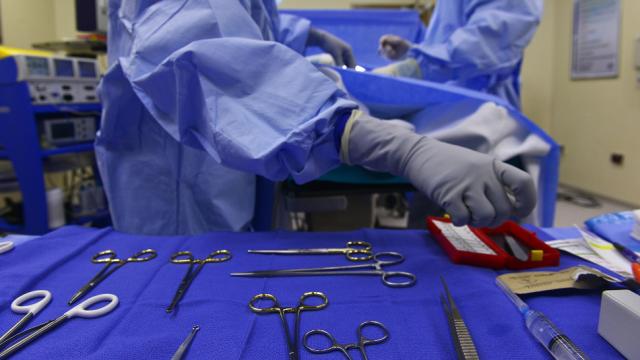New research suggests that the appendix, long believed to be a throwback to our evolutionary past, may serve an important purpose by boosting immunity and acting as a “safe house” for helpful gut bacteria.
Image: Skeeze/Pixabay
The appendix is an organ that has confounded scientists for centuries. The eminent evolutionary biologist Charles Darwin speculated that our distant primate ancestors used it for digesting leaves, a claim that eventually emerged as the leading hypothesis. No longer important from a survival standpoint, it’s now withering away at the genetic level, and occasionally flaring up in the form of appendicitis.
But not everyone believes the appendix is completely useless. Back in 2007, a team of biologists at Duke University proposed that the appendix serves as a “safe house” for useful bacteria. A new study published in the journal Comptes Rendus Palevol adds evidence to this claim, showing that the appendix is an important organ that has evolved independently dozens of times in the animal kingdom. By tracing the evolutionary history of animals with an appendix, the researchers were able to link the former digestive organ to its proposed role as a secondary immune organ and as a repository for valuable microorganisms.
Heather F. Smith, a professor of anatomy at Midwestern University Arizona College of Osteopathic Medicine, scanned 533 different mammalian species for the presence or absence of an appendix, and found that it emerged separately more than 30 times. Interestingly, she found that once an appendix appears in a species, it almost never disappears completely. This suggests that the organ has retained adaptive purpose — one that may have emerged as a secondary function once the organ lost its original raison d’etre.
Working with researchers from Duke University Medical Center, the University of Stellenbosch in South Africa and the Muséum National d’Histoire Naturelle in France, Smith discovered that species with an appendix tend to have higher concentrations of immune tissue (in the form of lymphoid tissue) in their cecum (a pouch connecting the small and large intestines). This discovery suggests that the appendix is a secondary immune organ. What’s more, lymphatic tissue can stimulate the growth of some types of beneficial bacteria, providing further evidence that the organ is indeed a protective place for helpful gut bacteria.
For those of you who have had your appendix removed, there’s no need to worry. Most people without an appendix are healthy, but it’s possible that some immune function has been diminished. Some studies suggest that appendix-less people have higher rates of infection than the general population. As Smith told Time, “It may also take them slightly longer to recover from illness, especially those in which the beneficial gut bacteria has been flushed out of the body.”
Losing an appendix isn’t the end of the world, but considering its useful function, you’re probably better off having it on the inside than the outside.
